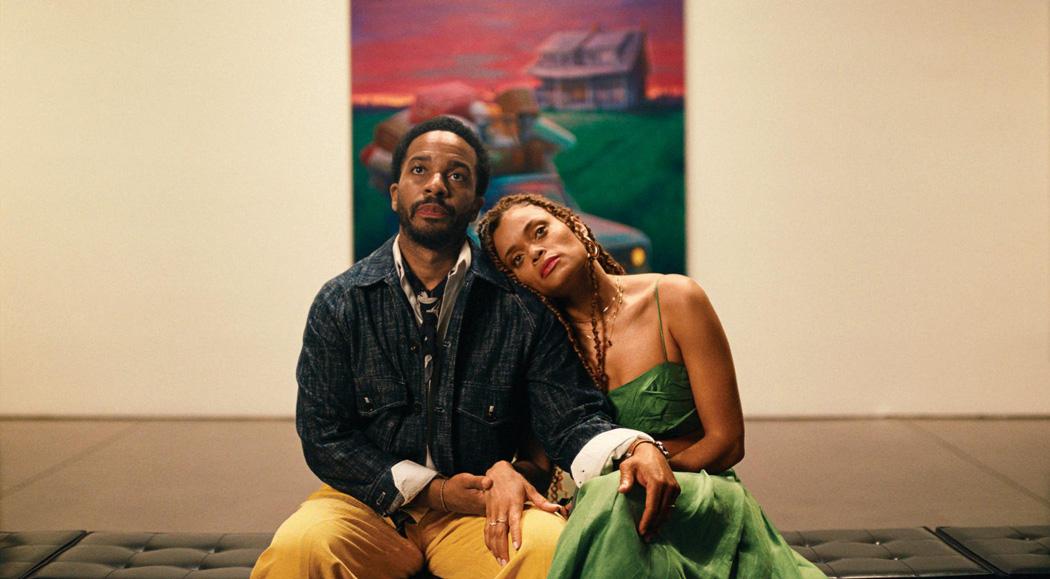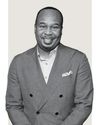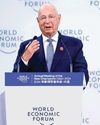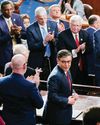
But upon completing it, he discovered he had only scratched the surface. “When I finished, what was clear to me is that it did a good job of telling us where we were, but not how we got there,” he says .
So he turned to fiction. In his new film Exhibiting Forgiveness, which premiered at Sundance in January and hit theaters in October, Kaphar casts André Holland as Tarrell, a celebrated American painter (as Kaphar is) whose life is unmoored by the reemergence of his abusive father and the fragile health of his mother. His parents’ religious beliefs create the expectation that Tarrell will grant easy absolution to his dad, thrusting Tarrell into a chaotic battle between religious values and the hurt he still carries. The film breaks from a long tradition in Black cinema of relying on religion, and the forgiveness it demands, as an all-healing balm. Instead, it offers a raw and realistic portrayal of what it looks like to process childhood trauma well into adulthood. And it let Kaphar himself dig deeper. “Allowing fi ction to play a part allowed me to go into my father’s head in a way that a documentary wouldn’t allow me to do.”
Kaphar’s art has often provided space to revisit the past. The Jerome Project was born out of a search in prison records for information about his father, through which he found 97 incarcerated Black men who share his father’s name; he interviewed them and painted Renaissance- and Byzantine- inspired portraits of them on gold leaf. His other works reclaim history through whitewashed portraits of Black Civil War soldiers, collages that place Black people’s faces in confrontation with slaveholders, devotional scenes that refigure Black people into biblical text.
This story is from the November 11, 2024 edition of Time.
Start your 7-day Magzter GOLD free trial to access thousands of curated premium stories, and 9,000+ magazines and newspapers.
Already a subscriber ? Sign In
This story is from the November 11, 2024 edition of Time.
Start your 7-day Magzter GOLD free trial to access thousands of curated premium stories, and 9,000+ magazines and newspapers.
Already a subscriber? Sign In

Q & A: Borge Brende
The World Economic Forum president talks with TIME editor Sam Jacobs

Q & A - Rene Haas
Arm's CEO on how his hardware is supporting the Fourth Industrial Revolution

The conflicts looming over 2025
WHEN DONALD TRUMP TOOK THE OATH OF OFFICE AS President in January 2017, his first foreign policy priority was to get tough on China. The Trump 2.0 Administration will continue that work. But when he strides back into the Oval Office in January 2025, Trump will also become responsible for U.S. management of two dangerous wars, the kinds of hot foreign policy crises he was fortunate to avoid during his first term.

Rev Lebaredian
Nvidia's vice president of Omniverse and simulation technology on training AI-powered robots

5 predictions for AI in 2025
New uses and policy questions come into focus

Roy Wood Jr. The comedian on his new stand-up special, the importance of working in food service, and learning from Keanu Reeves
8 QUESTIONS WITH Roy Wood Jr.

A call for global cooperation in the Intelligent Age
Cultivate wisdom along with innovation

The D.C. Brief
IN THE END, THE THREAT OF A FARright revolt proved more menacing than most imagined, as Republican Mike Johnson initially came up short on Jan. 3 during the first balloting to keep him as Speaker.

The digital labor revolution
OVER THE PAST TWO YEARS, WE'VE WITNESSED advances in AI that have captured our imaginations with unprecedented capabilities in language and ingenuity. And yet, as impressive as these developments have been, they're only the opening act. We are now entering a new era of autonomous AI agents that take action on their own and augment the work of humans. This isn't just an evolution of technology. It's a revolution that will fundamentally redefine how humans work, live, and connect with one another from this point forward.

Tech we can trust
Serving humanity's best interests must be at the center of progress